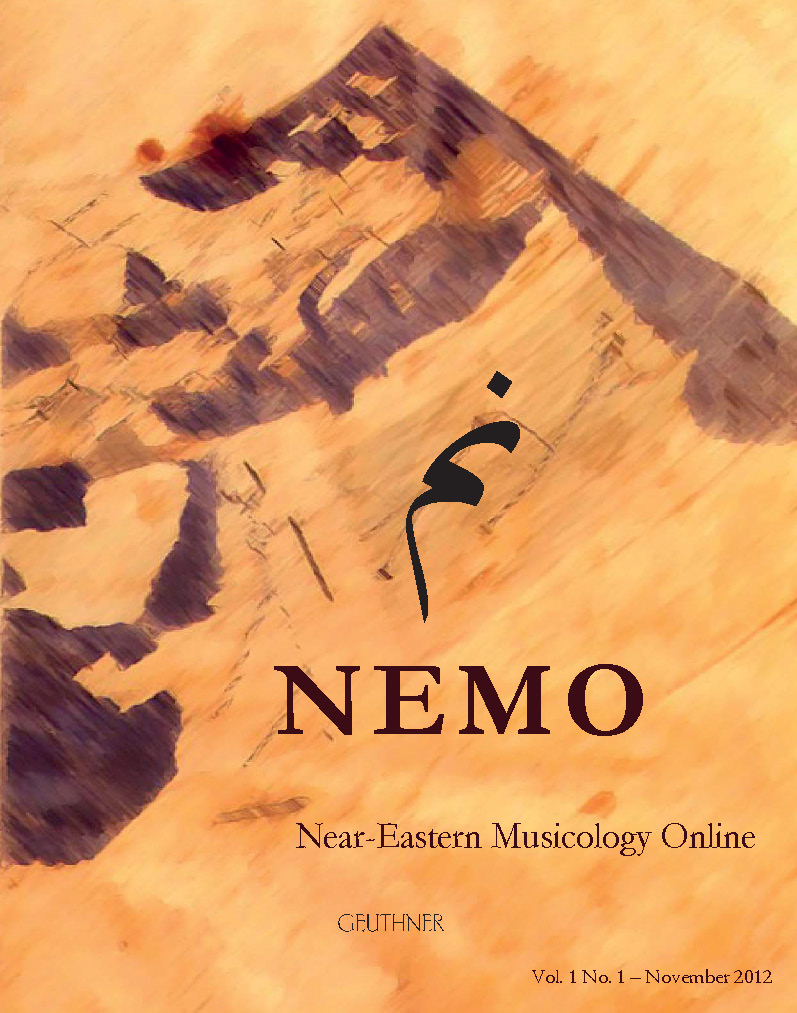English
NEMO-Online No. 4 : Call for papers
Research groups CERMAA, ICONEA and IReMus are seeking papers for the third issue of NEMO. The theme will be about ‘Instrumental facture from its sources in the Ancient Near East to modern times.’
All aspects of Organology will be considered such as:
Prehistory:
- Instrument making in pre-history as an unconscious cognitive phenomenon
- Distinction between implement and instrument
- Sensorial analogy in the conceptualisation of musical instruments
History:
- Instruments and totemism
- Instruments and worship
- Instruments as urban and commercial tools
- Earliest evidence of musical facture
- Organological evidence: material, glues and their making, hides, strings, woods, metals, etc.
- Recorded instrument makers, source of materials, etc.
From Christianity, Islam to modern:
- Evolution
- Prohibitions
- Influences
Is there a relationship between instruments and gender?
Papers to be sent both to Richard Dumbrill (rdumbrill[[[]]]nemo-online.org) and Amine Beyhom (abeyhom[[[]]]nemo-online.org) and should follow the editorial layout.
The Editing Board will consider the publication of papers which might be ‘off subject’ as long as they retain some relationship with the wider theme of the publication.
Deadlines: proposals by end of May 2015 and finalized paper by end of August 2015.
Français
Appel à contributions pour NEMO-Online N° 4
Les centres et groupes de recherches CERMAA, ICONEA et IReMus ont le plaisir d’annoncer le thème de NEMO-Online N°4 : « La facture instrumentale au (Proche-) Moyen-Orient, des origines à nos jours ».
Tous les aspects organologiques sont envisagés :
Préhistoire :
- Facture instrumentale dans la préhistoire comme phénomène cognitif inconscient
- Distinction entre ustensiles et instruments
- Analogies sensorielles dans la conception de l’instrument
Histoire :
- Instruments et totémisme
- Instruments et rituels
- Les instruments de musique en tant qu’objets économiques et sociaux
- Premières occurrences – Origines, preuves archéologiques ou iconographiques
- Faits organologiques : matériaux, colles et leur fabrication, peaux, cordes, bois, métal, etc.
- Luthiers, fabricants renommés, sources originales, etc.
Du christianisme originel à nos jours, en passant par l’Islam :
- Évolutions
- Prohibitions
- Influences
Y-a-t-il une relation entre l’instrument et le genre (masculin, féminin, neutre) ?
Langues et normes : voir ici.
Envoi des propositions d’articles à Richard Dumbrill (rdumbrill[[[]]]nemo-online.org) et Amine Beyhom (abeyhom[[[]]]nemo-online.org) avant : fin mai 2015.
Date limite d’envoi des articles : fin août 2015.
La rédaction acceptera également d’examiner des dossiers spéciaux ou des articles hors-thème, du moment qu’ils concernent la thématique générale de la revue.

